In September 2015, Zahra, a 29-year-old computer science graduate, arrived in Indonesia with her two daughters to esape violence in her hometown, Quetta. As a Hazara ethnic minority, her facial features differ from most Pakistanis, making her easy to identify. Most Hazaras are adherents of Shia Islam in a predominantly Sunni population and they are repeatedly attacked by terrorist groups who view them as heretics.
She was one-month pregnant with her second child when her then husband moved to Australia. In 2009 her parents also fled to Australia. They could not help her to apply for a visa because she was married.
“The situation in Quetta was not good because of killing and bomb blast…. I lived alone with my two daughters. It was really hard,” she told Magdalene in recent interview.
The only place she felt safe was on Alamdar Road, a residential area in Quetta guarded with check posts to prevent terrorist attack, she said. “If we went outside our residential area for working, we could be killed. All good colleges and hospitals are also located outside our area.”
Arezoo, 20, is also a Hazara who lived in Quetta. Unlike Zahra, she was born in Ghazni, Afghanistan, and later, moved to Pakistan when she was a child. She came to Indonesia with her brother in 2014. They traveled by car from Quetta to Islamabad for 16 hours and flew to Kuala Lumpur, Malaysia, before arriving by boat in Pekanbaru with 23 other people.
“We arrived in Pekanbaru on 2 November 2014 at one or two o’clock at night,” Arezoo said. They walked in the forest in the dark, unable to see anything. By afternoon, they went to the immigration but it was a Sunday, so, they had to wait.
“The security officer asked me to sit on the road. I cried and sat there until the maghrib (dusk) prayer time. Later, the security guard allowed me to sit inside the building. On Monday, the officer came, and for six months I lived at Pekanbaru immigration detention.”
Today, Zahra and Arezoo are part of the 65 women refugees who regularly participate in activities held by the Sisterhood Community Center in Jagakarsa, South Jakarta. The center was established by eight women, five of them refugees. In the center, refugees take part in various activities such as cooking class, sewing course, yoga, and gardening.
Joining yoga and sewing courses has changed Arezoo life. Before, she mostly stayed home and suffered from depression. She seeks a psychologist and psychiatrist every two months and has begun to feel better.
Zahra joined the advanced course because she had done some sewing before. She hopes to be independent so she does not have to depend on remittance from her parents who live in Australia.
“Financially, I don’t have any problem, but I don’t want to be dependent on my family. I am a mother of two daughters, so I have to do everything on my own,” she said.
The First Center for Refugee Women
According to UNHCR, as per December 2017, Indonesia hosted 13,840 refugees from 49 countries, around 50 percent of whom originated from Afghanistan. Refugees cannot legally work or study as the country does not ratify the 1951 Convention relating to the Status of Refugees or its 1967 Protocol. However, Indonesia has become a transit point for refugees before being resettled to a third country. Unfortunately, as many countries are tightening their policies on refugees, opportunities for resettlement is nearly impossible.
To address the problems, several learning centers in the Greater Jakarta area have been established to fulfill the basic needs of refugees and asylum seekers. Still, none of them were set up to target women’s needs.
“I had been supporting refugees-led organization in Jakarta for the last couple of years by strengthening their work and organization,” said Victoria Forsgate, a Scottish who co-founded and now advises the Sisterhood Community Center in a phone interview last month.
“And then I met Kalsoom, a Pakistani refugee,” she said, referring to the center’s co-founder of this center. “We were talking about something we could do for women refugees in particular because there was no center that specifically addressed women’s need. Kalsoom has a big network among the refugees so she brought some of those people in to discuss the project.”
But the project would not work without the support from Anggi, who owns the building and allowed the community to use use for three years rent-free, Victoria said.
Most of the projects are participated by women, as the center wants to give opportunity to women to lead a project that is created by themselves and for themselves.
“This is a project created by refugee women, and for refugee women,” said Victoria. “We have one tailoring instructor who is a man, but we rarely invite someone who is not a woman to be volunteer or to be part of the project. We want a space where women feel comfortable and relax so they can be themselves, where they can release their problem, concern, and worry,” she said.
Volunteers play a vital role in supporting Sisterhood Community Center’s work. All volunteers involved in the project have specific skills.
Intan Azura, a 27-year-old mother and freelance worker, has been teaching Indonesian cooking class at the center every Monday and Wednesday since November 2018.
“I came from a poor family. We did all household chores by ourselves, including cooking. My mother always encouraged me to help many people no matter where they come from or what religion they practice,” she said.
Most participants of the cooking class are really enthusiastic, she said. “In their countries, they never use cobek and ulekan (mortar and pestle). When I taught them how to use it, they did it very well, even better than me.”
Khatira, a 25-year-old Afghani refugee who used to work as a seamstress in Tehran, Iran, also feels the enthusiasm of the participants in her class.
“I teach basic and advanced level of tailoring. They are keen on learning and want to learn more. All of them are really enthusiastic. I hope they succeed and can use their talent in the future,” she said.
Running a community center has its challenges, particularly limited funding. Victoria said the center is always looking for donation. Luckily, a lot of people have been very supportive.
“When they find that you are doing something for refugee women, or women in general who have been victims of violence or other challenges, people are very supportive and they want to help,” she said.
Nimo, a Somalian refugee and one of the co-founders, said that due to the tight budget and limited number of volunteers, the number of participants and activities have to be limited.
“Right now, we only accommodate 65 women. There are 170 others in our waiting list. And because most participants live far from the center and they don’t get much financial assistant, we contribute Rp 30,000 for transport,” she said in an interview by phone
“Many women are also interested in learning how to open a beauty salon, but the teaching materials are expensive,” she added.
Capacity building is another big challenge, particularly in supporting the refugees who run the organization, most of whom have never had any experience running an organization. “We focus on building the capacity of the women to take the lead,” said Victoria.
For Soqra (name has been changed upon request), a 32-year-old mother of two sons who has been living in Indonesia since 2012, the center has been life-saving. The Tehran-born refugee took the sewing class to improve the skill she had learned in Iran and forget her daily problems.
“The center has saved me from depression,” she said.
Female leaders share their experience in advancing women’s participation in STEM.
Illustration by Sarah Arifin



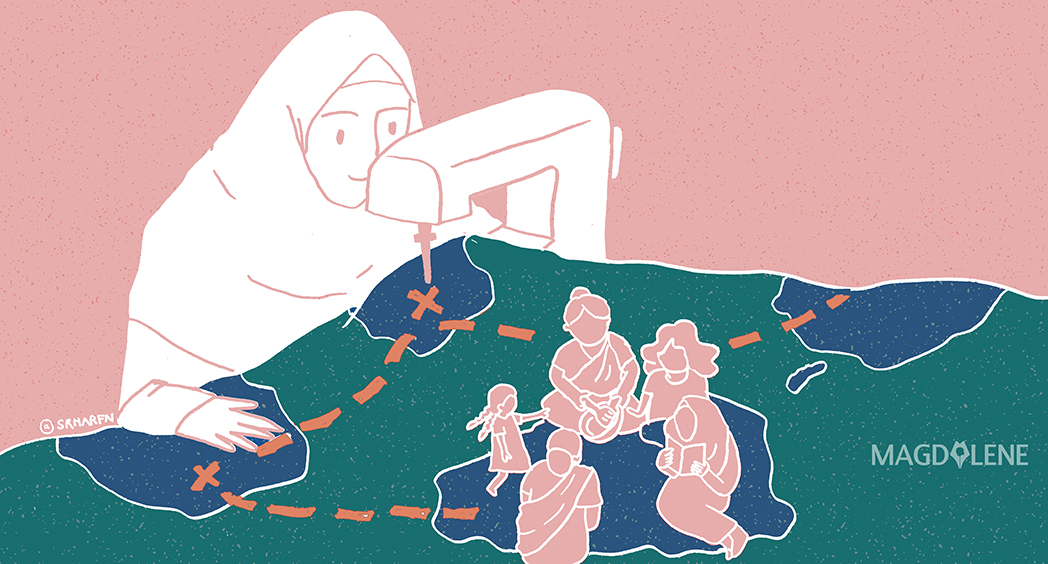
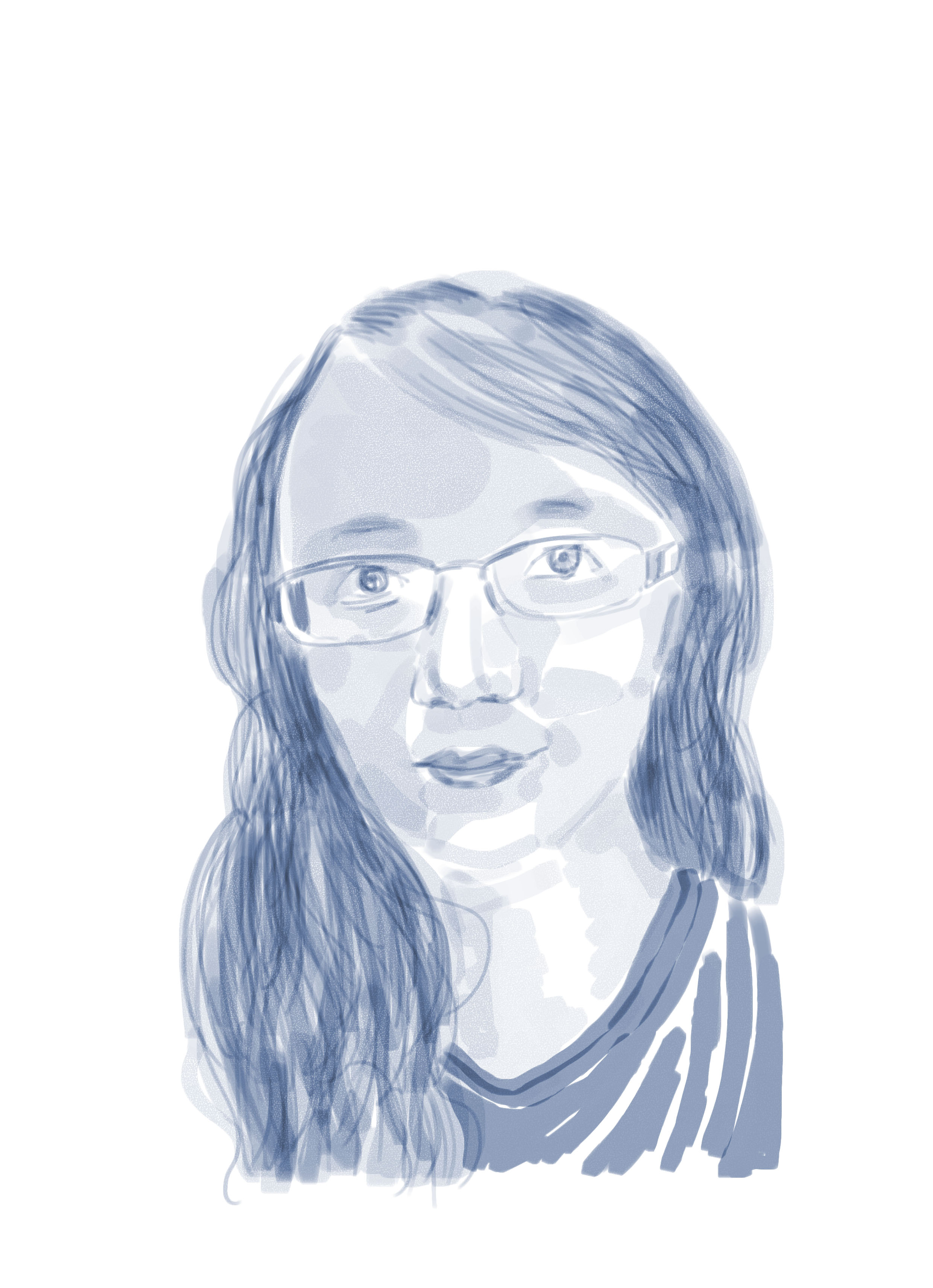
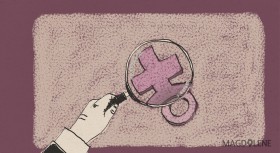
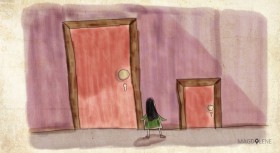
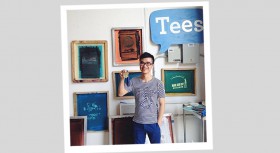
Comments